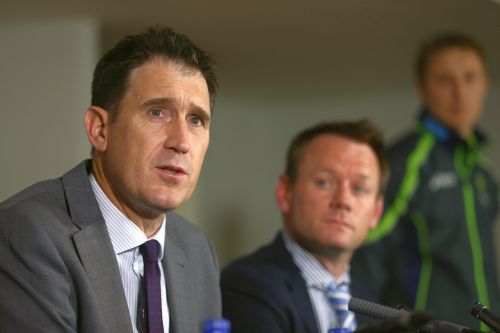Australia's Fair Work Ombudsman is investigating the national cricket board's controversial pregnancy clause in contracts offered to elite women players.
 Cricket Australia has been under fire over the clause which required women to declare whether they were pregnant before signing contracts.
Cricket Australia has been under fire over the clause which required women to declare whether they were pregnant before signing contracts.
The clause said: "The Player warrants that, to the best of her knowledge, she is not pregnant as at the date of signing this Contract and undertakes that upon becoming aware that she is pregnant, she will notify the details of the pregnancy (in writing, where practicable) to the CA medical officer (or such other appropriate representative of CA or other person designated by CA) as soon as reasonably practicable."
The clause has been slammed by women's groups as discriminatory after being brought to light during pay negotiations between the board and the players' association.
CA initially defended the clause as being out of concern for women's health and safety.
"Our only interest in whether one of our women players is pregnant is to ensure the health of her and her baby, and we have strict rules around medical confidentiality," CA high performance chief Pat Howard said in a statement this week.
"We are very mindful that cricket involves physical risk, and we need to ensure that our medical staff and players are aware of every aspect that can affect a player's health."
But CA changed its position on Saturday, announcing it would review its policies and contracts that applied to "pregnancy, maternity leave and carer support" after it was contacted by the labour watchdog on Friday.
"We will co-operate fully with the Ombudsman, and welcome their inquiries because it is always our intention to provide the best support for all our players," CA chief executive James Sutherland said in a statement.
Despite the probe, Sutherland blamed the players' association for raising the issue.
"We are extremely disappointed that this issue has been raised by the ACA (Australian Cricketers Association)," he said.
"Their senior executives were fully involved in negotiating, amending and then agreeing the contract for women players in the first half of 2015.
"As the ACA has shown no objection to this contract, they should take responsibility for their role in developing the current policy."








 © 2025
© 2025